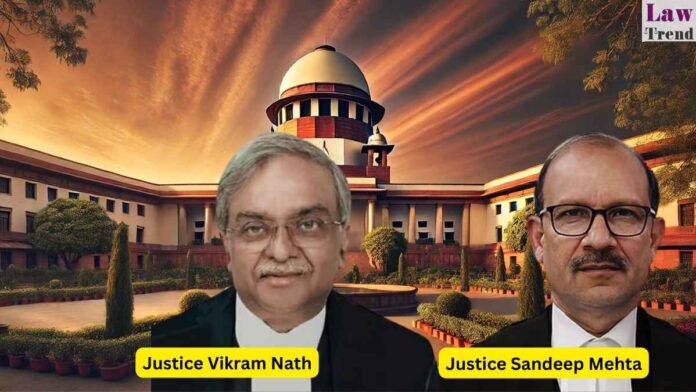The Supreme Court of India has ruled that selective regularisation of daily-wage employees, while denying the same benefit to others who are similarly placed in terms of tenure and duties, constitutes unequal treatment and is a “clear violation of equity.” A bench of Justice Vikram Nath and Justice Sandeep Mehta made this observation while ordering
To Read More Please Subscribe to VIP Membership for Unlimited Access to All the Articles, Download Available Copies of Judgments/Order, Acess to Central/State Bare Acts, Advertisement Free Content, Access to More than 4000 Legal Drafts( Readymade Editable Formats of Suits, Petitions, Writs, Legal Notices, Divorce Petitions, 138 Notices, Bail Applications etc.) in Hindi and English.




